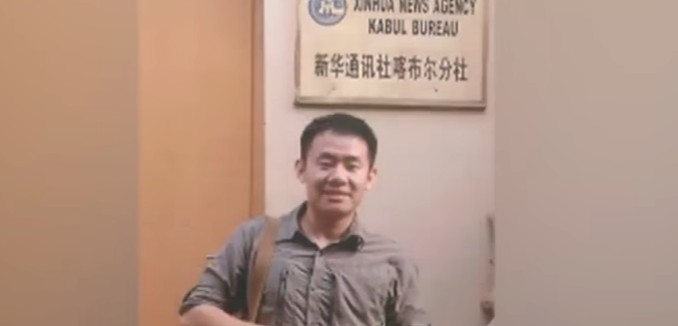The U.S. government must learn from the tragic case of American student Otto Warmbier and make the release of American hostages in Iran a priority, The Washington Post’s editorial board urged on Wednesday.
Warmbier was detained while visiting North Korea in January 2016, then sentenced to 15 years of hard labor after being convicted of attempting to steal a propaganda poster. While he only intended to tour the country for five days, he ultimately returned home in a comatose state after 18 months in captivity, dying just days after his release from injuries believed to have been inflicted by torture.
Less than a month after Warmbier’s death, Iran sentenced Xiyue Wang, a graduate student and researcher at Princeton University, to 10 years in an Iranian prison on charges of espionage. Wang visited Tehran to research the cultural history of the Qajar dynasty and stands accused of “infiltration” and collecting “confidential articles” after scanning historical documents housed in Iran’s national archive.
Wang is the first American taken hostage in Iran since President Hassan Rouhani won re-election in May after advocating a “moderate” platform. A number of other Americans are also languishing in Iranian jails on dubious charges.
On July 18, the U.S. State Department announced new sanctions against Iran, specifically citing the country’s habit of unlawfully detaining American citizens on trumped up charges. In addition, the White House released a statement condemning the “hostage-takers” in Iran.
“The arrests warrant a strong diplomatic response, and early signs have been encouraging,” the Post‘s editors stated, noting the newly-imposed sanctions, the statement, and the involvement of senior officials including U.S. Ambassador to the United Nations Nikki Haley and deputy national security adviser Dina Powell. In addition, the administration prevailed upon UN Secretary General António Guterres to send a letter to Rouhani seeking the release of Baquer Namazi, one of the Americans held by Iran.
“This pressure must be maintained until Iran releases all Americans it has arbitrarily imprisoned,” the editors urged.
Iran has a long history of imprisoning Americans without due process. “It’s a perfectly normal procedure and political practice in the Islamic Republic. That has been the case since the first day of the revolution and continues until today,” according to Ali Alfoneh, a nonresident Senior Fellow at the Atlantic Council.
Mr. Wang joins Karan Vafadari, a U.S. dual citizen who owns an art gallery in Tehran and was convicted of serving alcohol. As a member of the Zoroastrian faith, Vafadari is permitted under Iranian law to have alcohol for private purpose. Also imprisoned are Iranian-Americans Baquer and Siamak Namazi, a father and son who are being held in the notorious Evin prison. Baquer Namazi, 81, is in poor health after triple bypass surgery.
Another detained dual national is also faring poorly in Evin prison. Nazanin Zaghari-Radcliffe, a British-Iranian employee of the Thomson Reuters Foundation charity, can barely walk due to her deteriorating health, her family has claimed. Zaghari-Ratcliffe was arrested in April 2016 and separated from her toddler daughter at the airport as she prepared to leave Iran after a visit with her family. She was sentenced to five years in prison in October after being accused of attempting to overthrow the government.
Additionally, human rights campaigner Hengameh Shahidi, who already served two years in prison for protesting the contested 2009 election, was arrested again in March this year.
Iran and North Korea don’t just have a history of arresting Westerners on flimsy pretexts, they also work closely together against the U.S. and allies. Arms shipments between the two countries are intercepted on a regular basis, while North Korean nuclear scientists have worked with their counterparts in the Islamic Republic. Pyongang has also assisted Iran’s close ally Syria with developing its weapons of mass destruction.
[Photo: YouTube]




